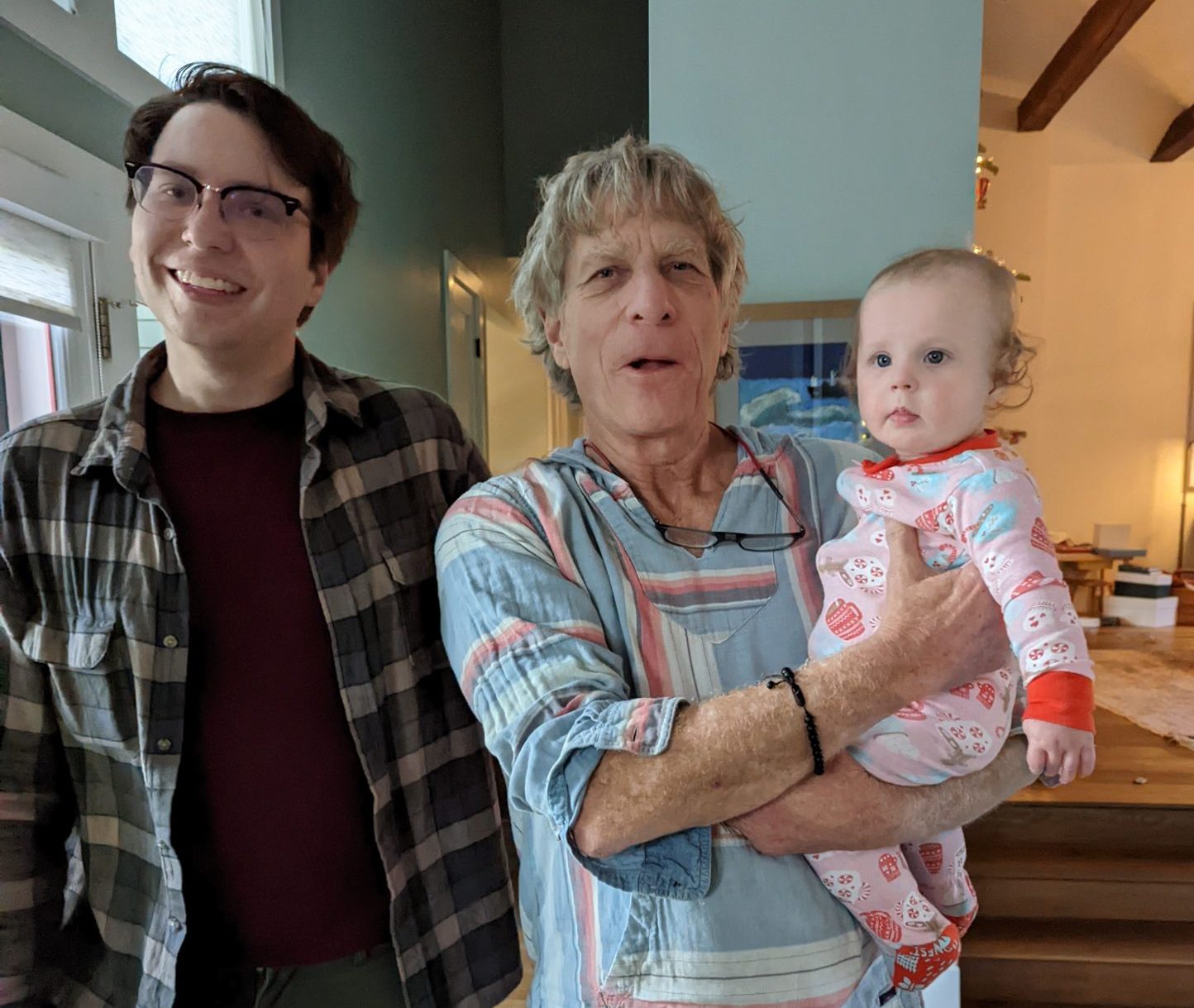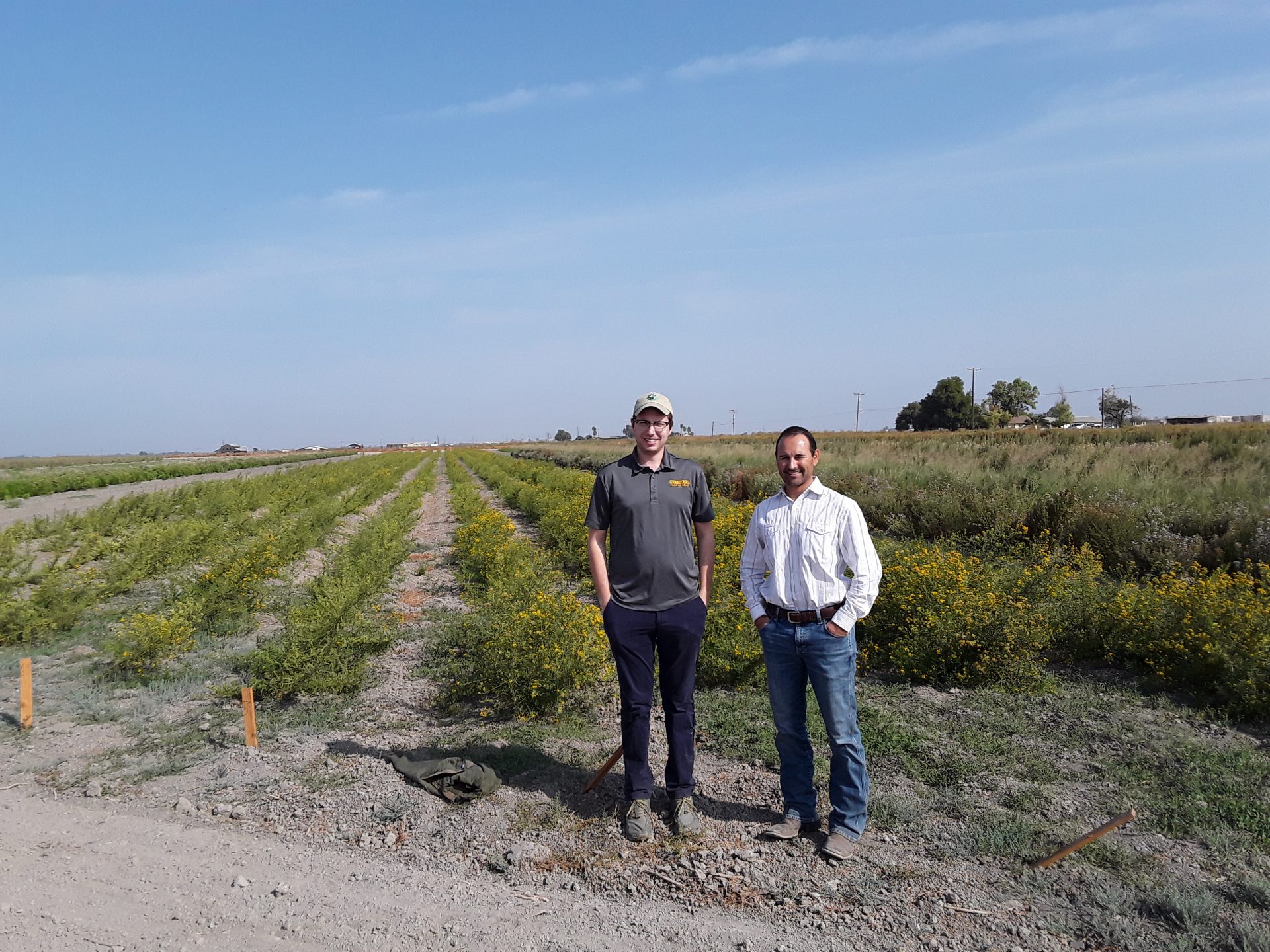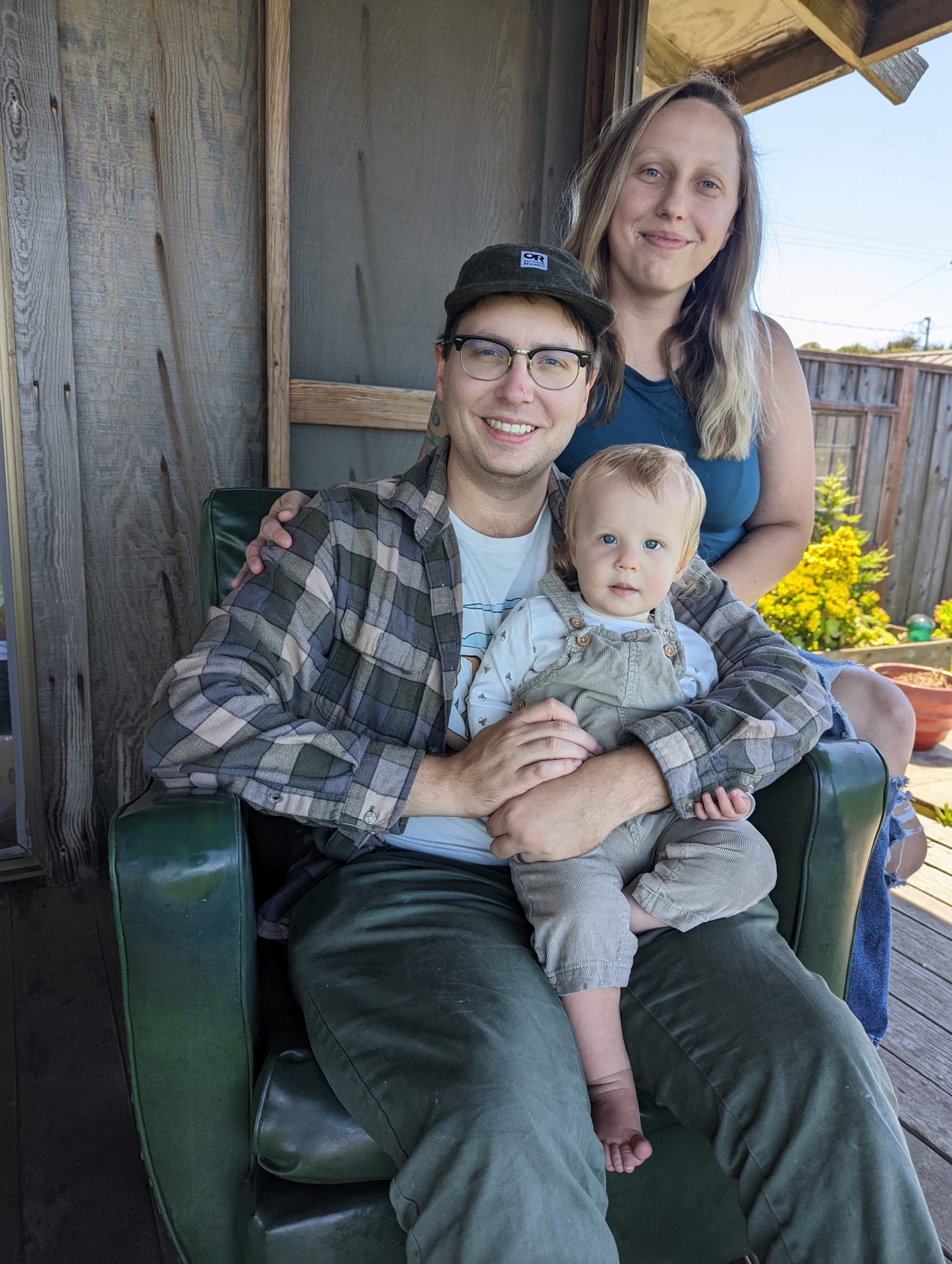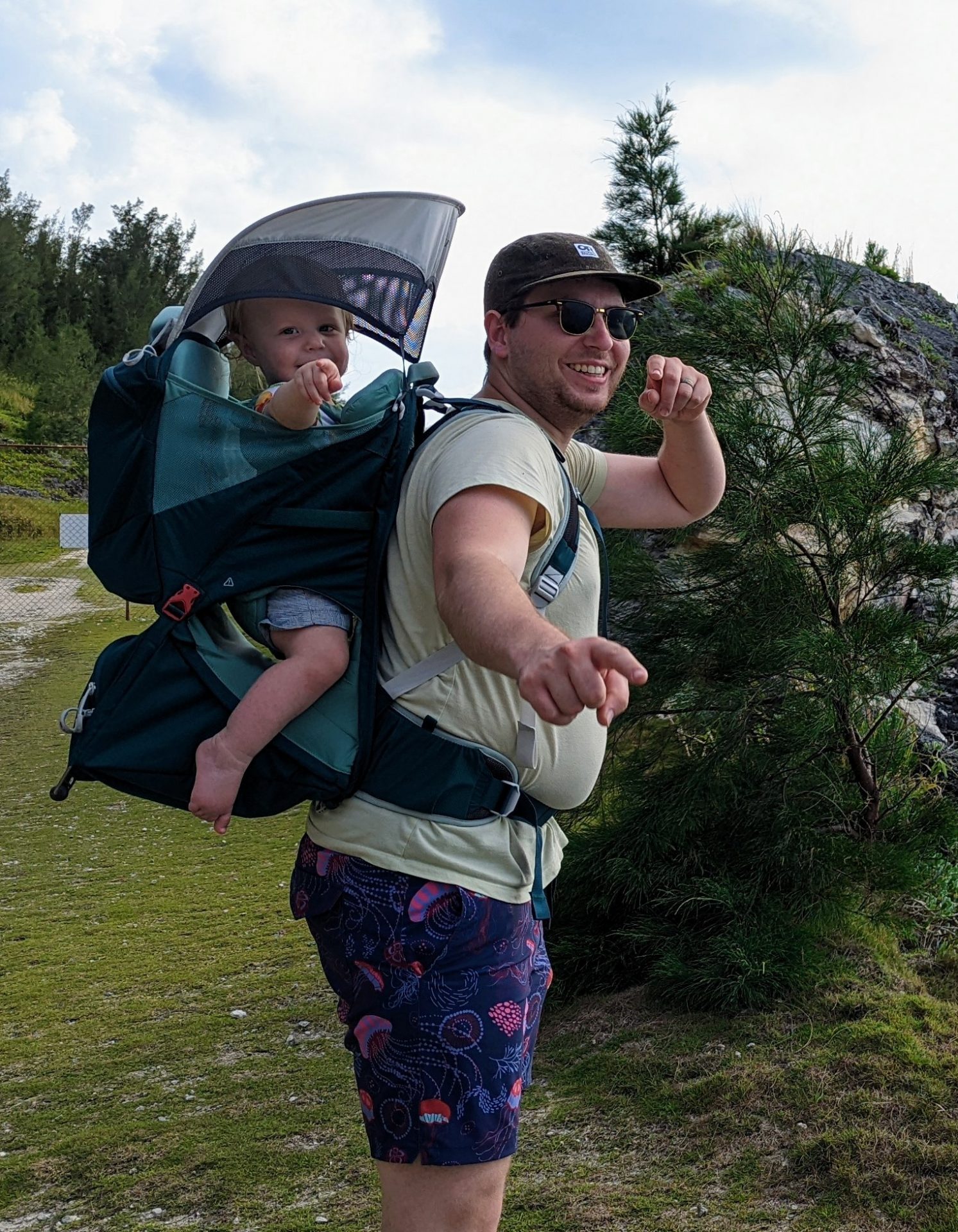Contact Information
-
MAILING : P.O. Box 8, Los Olivos, CA 93441
Interview with Miles Dakin '13
Miles, it’s so nice to meet with you! Give us a brief introduction. How did you end up at Midland School, and where did your undergraduate studies take you?
I’m actually a third-generation Midlander. My grandfather attended in the 40’s, and my dad graduated in ‘72. It’s a big family tradition.
After Midland, I did my undergrad at Tulane University with a double major in Ecology & Computer Science. I was actually studying Chemical Engineering when I started, but I quickly realized that wasn’t for me. I had always been interested in community ecology and modeling. I realized that in this work, there is often a disconnect between data scientists and biologists. Biologists rely heavily on computer science, but don’t necessarily have a deep understanding of the field and vice versa. I realized that I could be a person to connect these two worlds. I didn’t necessarily want to be a full-time computer scientist, but I was interested in theoretical modeling.

Miles class of ’13 with his dad Sam ’72 and baby Juniper, future class of 2039!
You went on to study Entomology as a graduate student. What influenced your decision?
I spent a year working at the Insectarium at the Audubon Nature Institute in New Orleans. The role was a combination of animal husbandry and entomology. I applied to and was accepted to a graduate program in Australia, and my wife (then-girlfriend) and I were ready to make the move abroad. However, just as we were getting everything in order to make the move, UC Davis called to offer me a position in a fully-funded graduate program in research focused on agriculture and pest management. Interestingly, it was funded by the pistachio research board and the role required someone with a background in computer science who could build some tools for farmers. Although it wasn’t a specialization I’d considered, the program felt like the right fit. We called off the Australia plan and moved our lives to Sacramento. I started doing pesticide application modeling in pistachios with a focus on the navel orange worm. There was a lot of being out in the field at 3:00 am to check on things! As my work continued, I shifted my focus to almonds and worked on some industry trials. I knew I wanted to go into agriculture, not academia, so I finished my Master’s degree in June 2022 and decided not to pursue a full doctoral degree.
Your current job is Bee Friendly Farming Coordinator at Pollinator Partnership. Tell me about your role and how it relates to your graduate studies in Entomology at UC Davis.
They were looking for someone who had experience in almonds to implement sustainability practices for pollinators. Having grown up in the nonprofit world due to my dad’s work, this appealed to me. Bee Friendly Farming is a certification program for farmers that are supporting pollinators. They have to support habitat and a big part of what I do is implement integrated pest management practices. The real strength I bring to the program is the fact that I understand a little bit what these almond farmers are going through, based on my graduate research work. I can know what their struggles are and think about how to implement operational improvements that work in their contexts. If someone goes to the farmers and says, “Hey you need to do x, y, z!” but you don’t understand their context, they will just push you away. So having coordinators with the right experience is crucial. We brought in someone in the Pacific Northwest whose background is in grapes who is working in vineyards, and someone else with a special focus on gardens. In this way, we can use our expertise to better support the farmers.

Miles with Derek Azevedo of Great Valley Seeds. Standing in front of a production field of native plants used for restoration project.
What approaches do you take to implement program goals?
We basically have two approaches. The first is grassroots work with small farms who are already conservation-focused such as organic farmers. In these cases, we can just approach the farmers at farmers’ markets. However, with almonds the approach is more top-down. All almonds have to go through a handler/ processor. There is no real direct to market situation. In this case, we partnered with the Almond Board of California directly. We started as high up as you can go. Their Chief Scientific Officer, Dr. Josette Lewis, has been a big supporter and has really helped us. The major processors have gotten involved as well. Our approach has been working with these big processors who buy from tens of thousands of acres and oversee billions of pounds of almond production. They have the ability to create internal programs that trickle down. We also focus on bringing in as many partners as we can so we can get every perspective on these issues. These include other non-profits, government agencies, farmers, etc.
Have there been any particular challenges in the work when it comes to implementing these sustainable practices?
Growers have to dedicate 3% of their land as a pollinator habit. That’s not an easy ask when you’re talking to farmers who are maximizing their land as much as possible. These practices come at a cost, especially when you’re going for all native habitats. In order to reduce the cost burden, we charge very little. That’s because the practices themselves require investment and we don’t want any extra barriers. Due to these expenses, we also try to get resources into the hands of these farmers through plant/ seed awards and cost share programs. This helps mitigate risk for farmers, as the expense and uncertainty can be quite a barrier.
You mentioned two of the Midland competencies that have been important to you are Critical Thinking & Analysis alongside Problem Solving. Can you give me an example of how you use these skills in your work?
There’s a lot of problem solving that goes into sustainable agriculture. If I’m working with one farm, and they are trying to figure out how to put in pollinator-friendly habitat or adopt new practices, we have to look at their full operations and figure out what’s going to work for them.
A more strategic issue that we also think about is: how do we convince the consumer market that they want to buy bee-friendly products? This requires partnership with big retailers and the implementation of education programs. This top-level goal is about increasing the value of pollinator-friendly products so farmers can also benefit. The critical thinking aspect plays into that too; a lot of what I do is research-focused. I write a lot of grants and oversee them. This brings me back to the critical, scientific part of the work.
How did your experiences at Midland prepare you for the type of work you’re doing now?
One thing that stayed with me is the sense of place and the understanding of our role in our communities. At Midland, it’s a specific community. However, I left Midland with a sense of my social responsibility and what I needed to do in the world. I know I can’t do everything, but I can focus on one thing. After building expertise in that area, it has actually turned out to be multiple avenues where I can affect change. The obvious focus is protecting the environment and addressing issues like climate change. In addition, issues such as food supply, food security, social justice are all interconnected.
I currently work remotely. It’s my responsibility to do this job and meet my goals. Midland sets you up for that pretty well in terms of putting a lot of focus on personal responsibility. If we look at students who are currently in school, so many students are struggling with this aspect. The balance of work and life or school and life has been really important too. When I was studying, I tried not to stress about academics. If I needed to, I would take a break. During my time at Midland, I learned to be okay with taking a break to go on a hike, or taking some time at a teacher’s house to bake cookies. Building in this balance is super important.
What are you involved in outside of work? Do you have any Midland-inspired hobbies?
I have a 15-month old baby, so my biggest thing in life right now is my family. We own a piece of property in Mendocino County, collectively. We own it together with a dozen-or-so cousins. It’s 4,000 acres and in a conservation easement. I work with our managers on the land management side of it. It’s very similar in terms of being inspired by Midland.

Miles and his wife Michelle celebrate Juniper’s first birthday in Bodega Bay, CA
Do you have any tips for Midland students who are interested in pursuing a career based on Entomology? Are there any industry trends that students can prepare for?
My biggest tip is “don’t be hesitant to take opportunities that are put your way.” It would have been very easy for me to just continue on with my Australia plans instead of taking the opportunity at UC Davis. I would have ended up on a different path. That’s a big thing I’ve learned in general, go with your gut or your intuition. I changed my major as an undergraduate due to the same reason. Sometimes the path you’ve set out for yourself doesn’t feel right, and it’s okay to change direction.
It’s very easy to be convinced that the career path for people these days is to work at a startup in this high pressure job at 80 hours a week. That is not always the best when you’re first starting out in your career. It’s easy to get overwhelmed and burnt out.

Miles and Juniper hiking in Bermuda, July 2022
Trends in the industry are focused on having computers optimize everything. This can lead to a more fast-paced work environment. It’s important to recognize the importance of a rhythm in life. You don’t have to jump into everything. It’s easy for people to think, “I have a degree in this field and it’s not okay to do anything else.” But just apply! If you get an interview, just be yourself and be passionate.
For entomology specifically, the focus areas tend to be medical or agriculture. If you want to be more of a general biologist, you can do that as well. Entomology as a field is very applied. If you’re excited about agriculture or pathogens, it can be a great focus area. Double majoring is always a good idea! It’s super useful to double major in fields that are very different from each other. It shows that you’re well rounded and can think differently. I had friends who did Neuroscience and Philosophy. Think about how two of your interests might converge. On the flip side, don’t worry too much about your GPA in your undergraduate studies. It’s more important to apply your learning.
Miles, thank you so much for sharing your time today to talk about your experiences! I’m sure many in the Midland community will be inspired by your work in sustainable agriculture.
For anyone who wants to connect with Miles, you can find him at LinkedIn. Learn more about Pollinator Partnership at their website.
Continue exploring the Midland experience